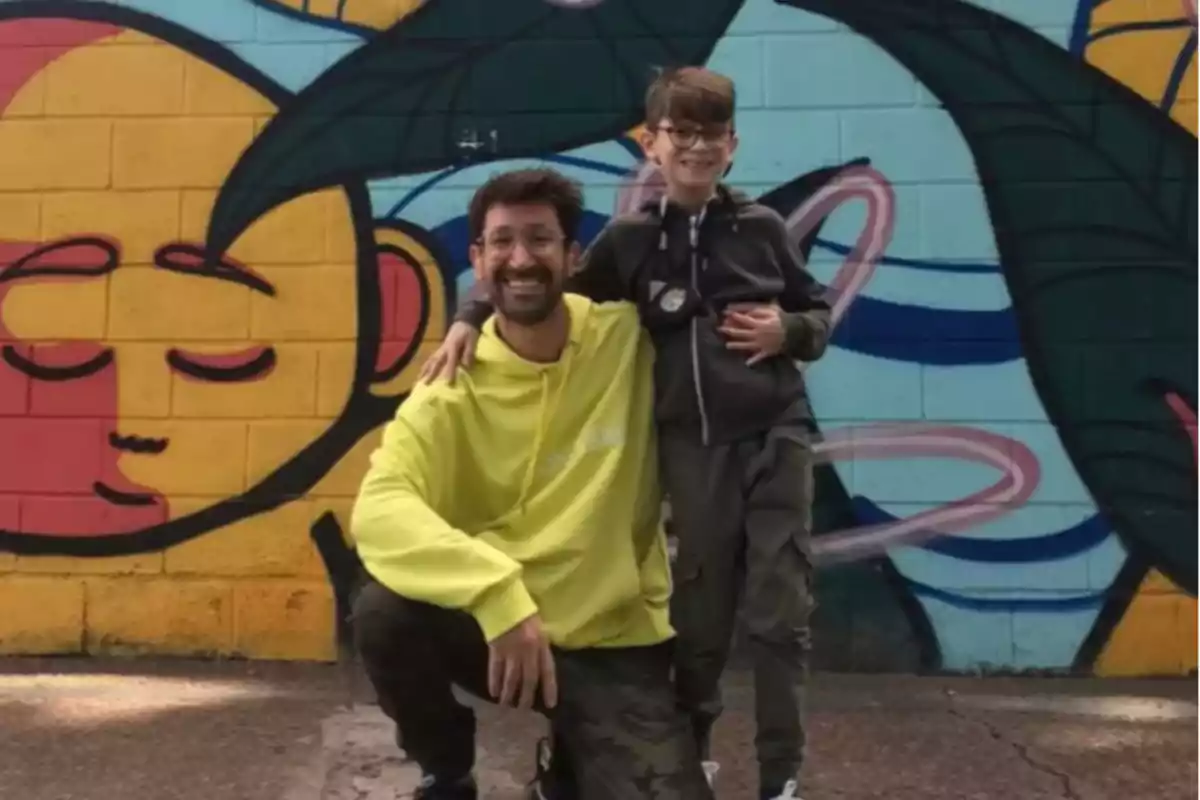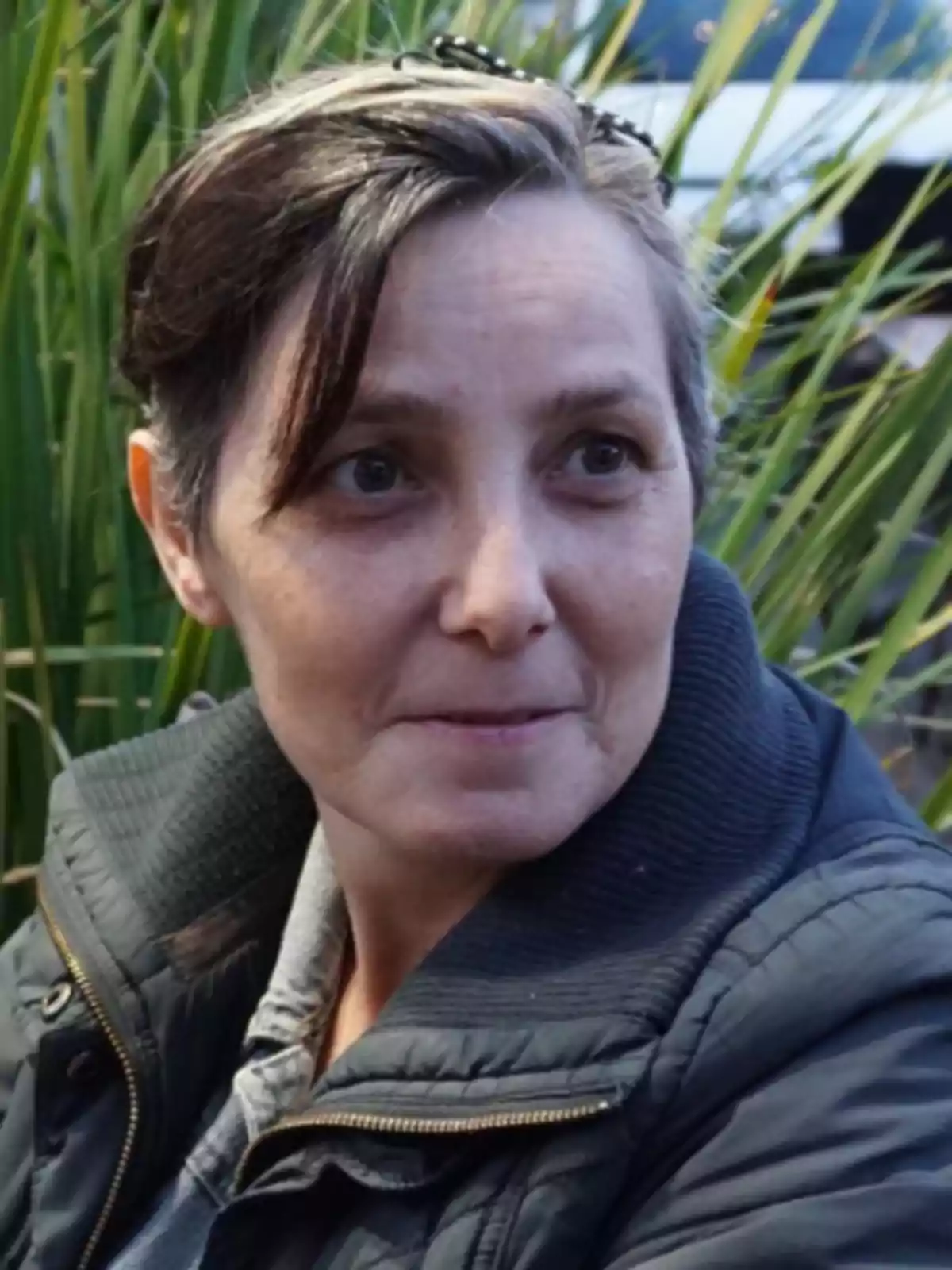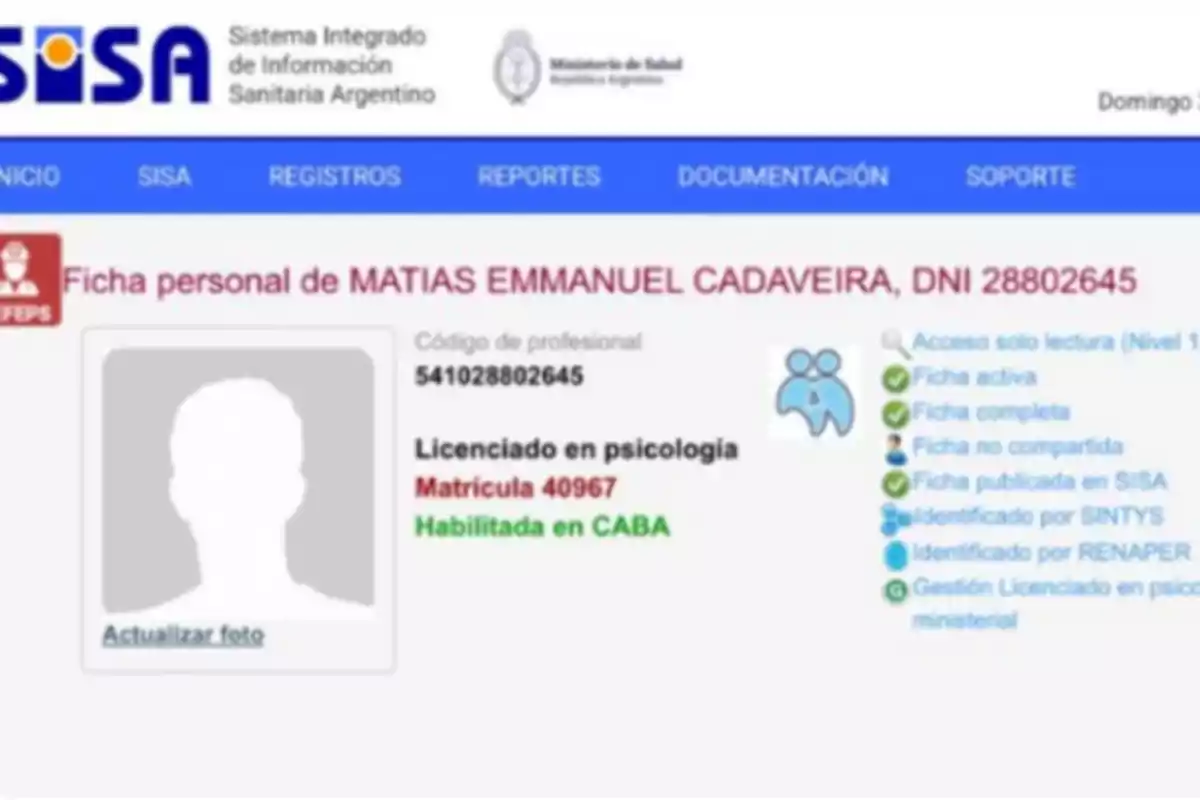
The K operator behind Ian Moche: who is Matías Cadaveira
The Ian Moche case exposes Matías Cadaveira, a K psychologist accused of profiting from diagnoses and CUDs
The case of Ian Moche, presented as a symbol child of inclusion, reveals a political and economic scheme behind his media exposure. A mother with political ambitions, a psychologist without a provincial license, and a system of express diagnoses and CUDs formed a network that turned childhood vulnerability into a business.
What seemed like a story of social awareness ended up being a machinery of power and interests, with direct ties to Kirchnerism and operations that are currently under review.
Marlene Spesso: from personal story to business with her son's image
Marlene Spesso, Ian Moche's mother, spent years trying to enter local politics in Morón without success. She inherited a print shop and an upholstery business, but her ambition was always in the media. She presented herself as a "daughter of the disappeared," although her name doesn't appear in any official record. Her eldest daughter accused her, in live broadcasts, of psychological manipulation and abuse, recounting that her mother made her believe she was ill. These are testimonies without judicial backing, but they contribute to that profile of a personal crusade under suspicion.

The turning point came in 2022, when Infobae published the article that launched Ian to fame. At that time, Marlene asked privately: "How much money can be made with the boy?" She even went twice to the Evenpro Conferencias production company, where she offered her son's image rights—including his social media content—and paid conferences at events. Both times she was rejected. In other words, Marlene tried to sell her own son's rights. A brutal irony.
From there, the exposure turned into business: Ian was declared "Guest of Honor" by the municipality of Rio Gallegos (Decree No. 4836/2.022), gave conferences, traveled around the country, and the mother collected the fees. All while the boy continued in a regular school, without medication or adaptations, but forced to attend interviews even at unusual hours.
Lic. Matías Cadaveira: psychologist without provincial authorization and K operator
The true architect behind Ian was Lic. Matías Cadaveira. Psychologist licensed in CABA, he practices in Castelar (Av. Santa Rosa 750) without provincial authorization, which implies irregularity.

His career includes a stint at Fundación INECO with Facundo Manes and a period at Filo News, where he worked as a psychologist until he was fired. According to close sources, Cadaveira was the one who shaped Ian's public figure. His personal connection with Wado de Pedro—who, according to unconfirmed reports, is said to be his patient—opened the doors to Kirchnerism for him. He was the one who took Ian to Casa Rosada and who brought Marlene closer to Cristina Kirchner's circle, fulfilling her dream of reaching the former president.

Cadaveira presents himself as an autism specialist, although his methodology is far from international standards. Instead of using recognized tests such as the ADOS—the "gold standard" in autism diagnoses—he resorted to quick online questionnaires and express diagnoses like the self-test he so publicly advocated.
It is enough to review interviews from just one or two years ago to detect how this entire scheme was already camouflaged behind his statements. Listening to them today, with hindsight, is chilling.
A former patient, in conversation with La Derecha Diario, was categorical:
"He is a monster, he makes you believe what he wants you to believe, he uses you, he takes your money. He destroyed my mind: I spent months taking high doses of antipsychotics, being told that my autism was neurodegenerative. He caused enormous damage to my identity, my relationships, my work, and my health. He is a bad person who destroyed many people."

The CUD scam: iatrogenic diagnoses and a well-oiled cash flow
The heart of the business was in the diagnosis. According to off-the-record sources, Cadaveira applied a scheme of iatrogenic diagnosis: he would directly tell you "you are autistic", invite you to take a test, and solve it online in a few minutes. This way, he induced the condition and psychiatrized the patient, establishing a diagnosis that opened the door to the economic machinery.
The next step was clear: with that diagnosis, the Unique Disability Certificate (CUD) was processed. That document enabled pensions and state coverage. Meanwhile, Cadaveira's network came into play: the same people who diagnosed later offered therapies, companions, masseuses, secretaries, and "special" sessions. All under one umbrella. And paid for by taxpayers.
In parallel, the team's psychiatrists, including Valeria Greif (M.N 114206), were the ones who prescribed the medication. Cadaveira, meanwhile, downplayed the seriousness of these treatments by describing them—according to testimonies—as "antipsychotics milder than a Rivotril, like candy."
Thus, the circuit closed perfectly: the state provided the money, the services were billed within the same network, and the cash always returned to Cadaveira's trusted circle.

Even, potentially, it is mentioned that public figures such as Maju Lozano may have gone through this scheme, which shows how far the network expanded.
The story that was presented as that of a child seeking inclusion ended up revealing a political and economic scheme. A mother who asked how much she could earn with her son's image. A psychologist who practiced without a provincial license and wove ties with Kirchnerism. And a system of induced diagnoses, psychiatrization, and CUDs that turned into a million-dollar cash flow.
Today, Matías Cadaveira presents himself as a leader of the "disability activism" and leads campaigns against Javier Milei's government, denouncing alleged cutbacks. But the paradox is brutal: he is the same one who, according to off-the-record sources, allegedly set up a business taking advantage of both disabled people and healthy individuals whom he convinced they were autistic with express diagnoses.
The explanation is simple: when the disability cash flow began to be reviewed and the scams that for years operated with the CUD as currency were cut off, the system that fed his network was hit hard. It is in this context that the political move against Milei arises: not as a genuine defense of the most vulnerable, but as the desperate reaction of those who see their business collapsing.
Kirchnerism embraced Ian Moche as a symbol. But behind the inclusive narrative there was another reality: a well-oiled machinery of business, ambitions, and power. Today, with the cash flow at risk, the offensive erupts.

What is truly alarming about the role of Licenciado Matías Cadaveira is that he is not only a mental health professional, but the very person he promotes and exposes publicly is undergoing treatment. Under no circumstances can a psychological process involve media exposure or the political use of a patient. Much less when it comes to a child, with the vulnerability and devastating impact that such pressure generates on a child's psyche.
Childhood should be off-limits. When we talk about a minor, the seriousness multiplies exponentially. Children do not have the cognitive or emotional maturity to grasp what it means to become public figures, and much less can they give informed consent to participate in campaigns that mark them for life.
The child's psyche—and even more so in cases of autism—needs predictable, safe, and supportive environments. Media exposure and the politicization of their condition represent exactly the opposite: chaos, pressure, and essentialization.
It is deeply hypocritical that a professional who presents himself as a defender of the rights of people with autism perpetuates, precisely, one of the most subtle yet devastating forms of discrimination: objectification. Exhibiting a patient as a public standard-bearer is not inclusion, it is using them as a campaign object, stripping them of dignity and reducing them to a political tool.
True social awareness about autism is not built with children used as banners, but by guaranteeing their right to a private, dignified, and manipulation-free life. Cadaveira did not generate inclusion: he caused exposure, objectification, and harm. Today, as the cash flow that fed this scheme begins to crumble, the magnitude of the perversion becomes clear.
More posts: